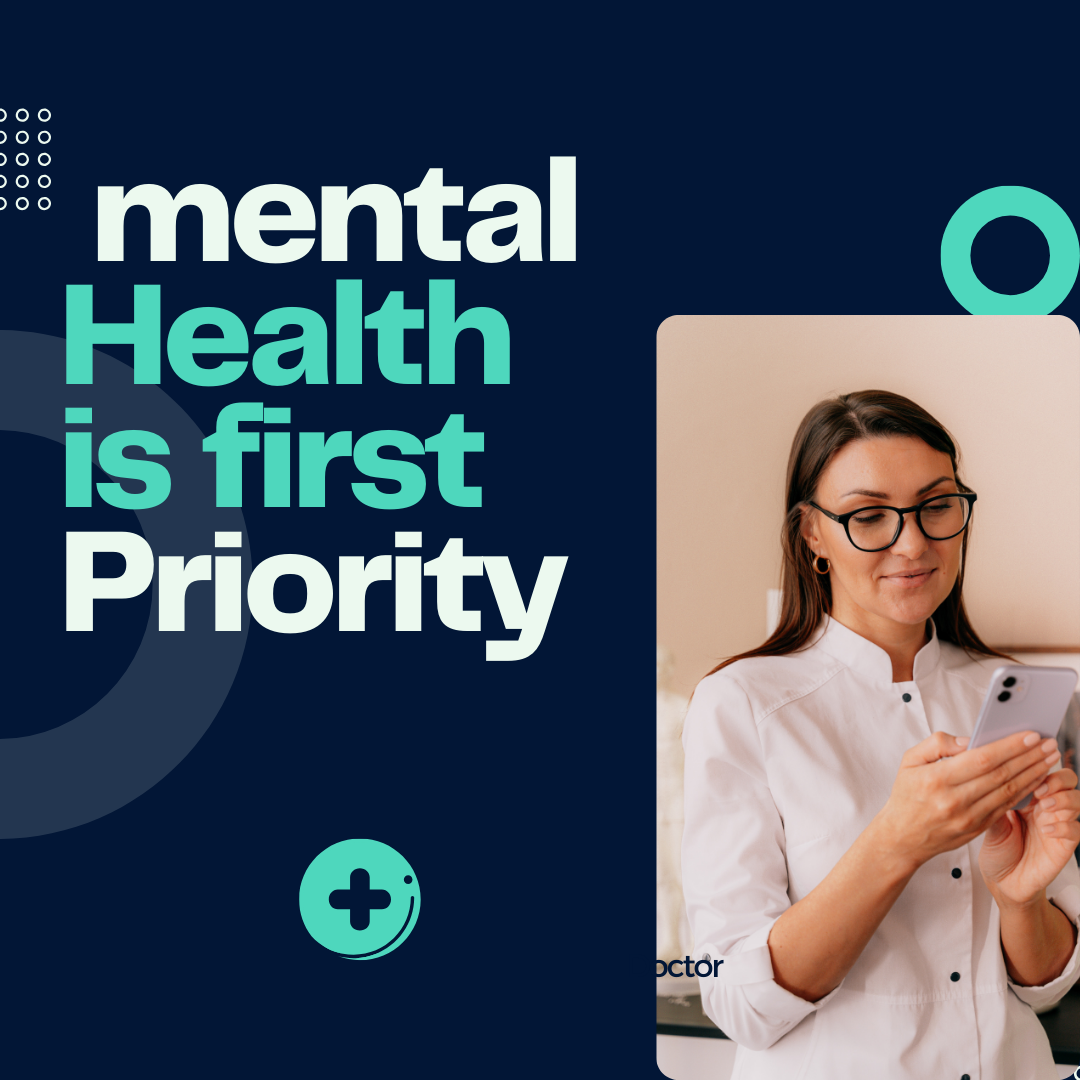Understanding Mental Health: A Comprehensive Guide to Well-Being
Introduction to Mental Health
- Definition of Mental Health:
Mental health encompasses our emotional, psychological, and social well-being. It affects how we think, feel, and act, influencing our ability to handle stress, relate to others, and make choices. mental health is more than just the absence of mental illness; it involves a state of well-being where individuals can realize their potential, cope with the normal stresses of life, work productively, and contribute to their communities.
- Importance of mental health in overall well-being:
Mental health is crucial for overall well-being. It impacts physical health, relationships, and productivity. When mental health is prioritized, individuals are more likely to lead fulfilling lives, maintain healthy relationships, and achieve their goals.

- Common misconceptions about mental health:
Many misconceptions surrounding mental health, such as the belief that mental health issues are a sign of weakness or that they only affect certain people. In reality, mental health issues can affect anyone, regardless of age, gender, or background. Understanding these misconceptions is vital for fostering a supportive environment.
B. Historical Perspective:
- Evolution of mental health understanding
The understanding of mental health has evolved significantly over the centuries. Early views often attributed mental illness to supernatural forces, while modern perspectives recognize it as a complex interplay of biological, psychological, and social factors.
2. Key milestones in mental health treatment
Significant milestones include the establishment of asylums in the 19th century, the introduction of psychoanalysis by Sigmund Freud, and the development of various therapeutic approaches in the 20th century, such as cognitive-behavioural therapy (CBT).

- Cultural influences on mental health perceptions
Cultural beliefs and practices shape how mental health is perceived and treated. In some cultures, mental health issues may be stigmatized, while others may embrace holistic approaches to well-being.
C. Current Trends in Mental Health Awareness:
1.Rise of mental health advocacy:
In recent years, there has been a significant rise in mental health advocacy, with individuals and organizations working to raise awareness, reduce stigma, and promote mental health resources.
- Impact of social media on mental health discussions:
Social media platforms have become vital spaces for discussing mental health. They provide a platform for sharing personal stories, resources, and support, helping to normalize conversations around mental health.

- The role of education in mental health awareness:
Educational institutions are increasingly incorporating mental health education into their curricula, helping students understand the importance of mental well-being and equipping them with coping strategies.
Common Mental Health Disorders:
- Anxiety Disorders:
- 1. Types of anxiety disorders:
Anxiety disorders include generalized anxiety disorder (GAD), panic disorder, social anxiety disorder, and specific phobias. Each type has unique characteristics but generally involves excessive fear or worry.
- Symptoms and diagnosis:
Symptoms may include restlessness, rapid heartbeat, excessive worry, and avoidance of certain situations. Diagnosis typically involves a thorough evaluation by a mental health professional.
- Treatment options and coping strategies
Treatment may include therapy, medication, and lifestyle changes. Coping strategies such as mindfulness, deep breathing exercises, and regular physical activity can also be beneficial.
Mood Disorders:
- Overview of depression and bipolar disorder
Mood disorders primarily include depression and bipolar disorder. Depression is characterized by persistent sadness and loss of interest, while bipolar disorder involves extreme mood swings.
- Signs and symptoms to watch for:
Signs of depression may include fatigue, changes in appetite, and feelings of hopelessness. In bipolar disorder, individuals may experience manic episodes characterized by elevated mood and increased energy.
- Therapeutic approaches and lifestyle changes:
Treatment options include psychotherapy, medication, and lifestyle changes such as regular exercise, a balanced diet, and adequate sleep.
Personality Disorders:
- Definition and types of personality disorders:
Personality disorders are characterized by enduring patterns of behaviour, cognition, and inner experience that deviate from cultural expectations. Types include borderline, narcissistic, and antisocial personality disorders.
- Challenges in diagnosis and treatment:
Diagnosing personality disorders can be complex due to overlapping symptoms with other mental health issues. Treatment often involves long-term therapy and support.
- Support systems and resources for individuals:
Support systems, including therapy groups and community resources, play a crucial role in helping individuals manage their conditions and improve their quality of life.
III. Factors Affecting Mental Health:
Biological Influences:
- Genetic predispositions to mental health issues:
Genetics can play a significant role in mental health, with certain disorders running in families. Understanding genetic predispositions can help in early identification and intervention.
- Neurotransmitter imbalances and their effects:
Neurotransmitters, such as serotonin and dopamine, are crucial for regulating mood. Imbalances can contribute to various mental health disorders, highlighting the importance of biological factors.
- The role of physical health in mental well-being
Physical health is closely linked to mental health. Chronic illnesses, poor nutrition, and lack of exercise can negatively impact mental well-being.
Environmental Factors
1.Impact of family dynamics and relationships
Family dynamics and relationships significantly influence mental health. Supportive relationships can foster resilience, while toxic environments can contribute to mental health issues.
2.Effects of trauma and adverse childhood experiences
Trauma and adverse childhood experiences can have lasting effects on mental health, increasing the risk of developing various disorders later in life.
Lifestyle Choices:
1.The influence of diet and nutrition on mental health:
A balanced diet rich in nutrients can positively impact mental health. Foods high in omega-3 fatty acids, antioxidants, and vitamins are particularly beneficial.
- Importance of physical activity and exercise
Regular physical activity is linked to improved mood and reduced anxiety. Exercise releases endorphins, which can enhance feelings of well-being.
Strategies for Improving Mental Health:
- Professional Help:
Mental health professionals include psychologists, psychiatrists, social workers, and counslors. Each plays a unique role in providing support and treatment.
3.Medication options and considerations:
Medication can be an effective treatment for many mental health disorders. It’s important to work closely with a healthcare provider to find the right medication and dosage.

Conclusion
Mental health is a vital component of overall well-being, influencing every aspect of our lives. By understanding mental health, recognizing common disorders, and exploring factors that affect it, we can take proactive steps toward improving our mental well-being.
Prioritizing mental health in daily life is essential. Whether through professional help, self-care practices, or community resources, there are numerous ways to support mental health.
If you or someone you know is struggling with mental health challenges, remember that seeking help is a sign of strength. Reach out to a mental health professional or a supportive friend or family member.
- Importance of therapy and counseling:
Therapy and counseling offer a safe space to explore feelings, develop coping strategies, and work through challenges. They are essential components of mental health care.
3.Medication options and considerations
Medication can be an effective treatment for many mental health disorders. It’s important to work closely with a healthcare provider to find the right medication and dosage.
